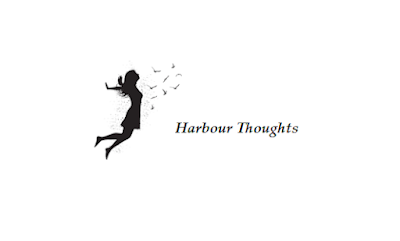After Panmunjom
for Major Yoon Gil
By H.R. Bandaharo
after panmunjom
everything maimed
except ideology
the imperialists vented their malice
on things and innocent people
everywhere destruction
everything in ruins
corpses of partisans piled up
and no two stones standing
after panmunjom
nothing has been steeled more
than the people
ideology unmaimed
people steeled
that's a giant creator
korea stands gloriously erect
on the red soil.
Source: Contemporary Progressive Indonesian Poetry, 1962
Poem Analysis:
H.R. Bandaharo's poem After Panmunjom reflects the aftermath of the Korean War and the armistice that followed the Panmunjom negotiations in 1953. Through powerful imagery and evocative language, the poem examines the physical and ideological devastation wrought by imperialism, while also celebrating the resilience of the Korean people.
Theme of Destruction
The poem opens with the stark phrase, “after Panmunjom / everything maimed,” which immediately establishes a sense of devastation. The word “maimed” conveys not just physical destruction but also a deep, lasting injury to the land and its people. Bandaharo's use of “everything” emphasizes the totality of the destruction—nothing has escaped the ravages of war.
The lines that follow depict the violence of imperialism, stating that “the imperialists vented their malice / on things and innocent people.” Here, the imperialists are portrayed as cruel aggressors, responsible for the chaos and suffering. The repetition of destruction—“everywhere destruction” and “everything in ruins”—paints a grim picture of a landscape littered with corpses and shattered remnants of civilization. The mention of “corpses of partisans piled up” further underscores the human cost of the conflict, invoking a sense of loss and mourning.
Endurance of Ideology
In contrast to the physical devastation, the poem asserts that “except ideology / the imperialists vented their malice.” This statement suggests that while the tangible aspects of life have been destroyed, the ideological foundations of the struggle remain intact. The phrase “ideology unmaimed” speaks to the strength of the revolutionary ideals that inspired the fight against imperialism. This enduring ideology is portrayed as a source of hope and motivation for the people, highlighting its importance in the aftermath of destruction.
The line “nothing has been steeled more / than the people” serves as a powerful assertion of resilience. The use of the word “steeled” suggests that the experiences of war and oppression have fortified the spirit of the Korean people, making them more resolute in their pursuit of justice and liberation. This metaphor contrasts sharply with the physical destruction surrounding them, indicating that while the material world may be in ruins, the human spirit remains unbroken.
Celebration of Resilience and Unity
The poem culminates in a triumphant declaration: “that's a giant creator / korea stands gloriously erect / on the red soil.” Here, the imagery shifts from destruction to resilience and renewal. The phrase “gloriously erect” suggests not only survival but also a newfound strength and dignity. The “red soil” evokes a sense of nationalism and pride, indicating that the land itself is infused with the sacrifices of those who fought for it.
This transformation from a state of ruin to one of glory signifies the power of collective struggle and the potential for rebirth. Bandaharo’s celebration of the Korean people’s resilience serves as a reminder that out of the ashes of destruction, a new identity can emerge, rooted in shared experiences and ideological commitment.
Structure and Language
The poem’s structure, with its short, stark lines, mirrors the intensity and immediacy of the themes being addressed. The brevity of each line creates a sense of urgency, drawing the reader's attention to the harsh realities of war and its aftermath. The use of enjambment, particularly in phrases like “after Panmunjom / nothing has been steeled more,” contributes to a fluid, urgent quality, emphasizing the relentless nature of both destruction and resilience.
Bandaharo’s choice of language is laden with emotive power, using terms like “maimed,” “ruins,” and “corpses” to evoke visceral reactions from the reader. In contrast, words like “gloriously erect” and “giant creator” serve to uplift and inspire, showcasing the duality of despair and hope.
A Reflection on Ideology and Resilience
After Panmunjom by H.R. Bandaharo is a powerful meditation on the consequences of war and imperialism, as well as a celebration of the enduring spirit of the Korean people. The poem captures the stark contrast between the physical devastation left in the wake of conflict and the unbreakable ideological foundations that sustain hope for a better future. Through vivid imagery and emotive language, Bandaharo emphasizes that while the material world may be shattered, the human spirit—embodied by the collective strength of the people—remains resilient and steadfast.
Bandaharo’s work serves as both a lament for the losses suffered and a call to embrace the revolutionary ideals that can guide the path to healing and renewal. The poem reminds us that even in the darkest of times, hope and strength can be found in unity and shared purpose, allowing for the possibility of a brighter tomorrow.
